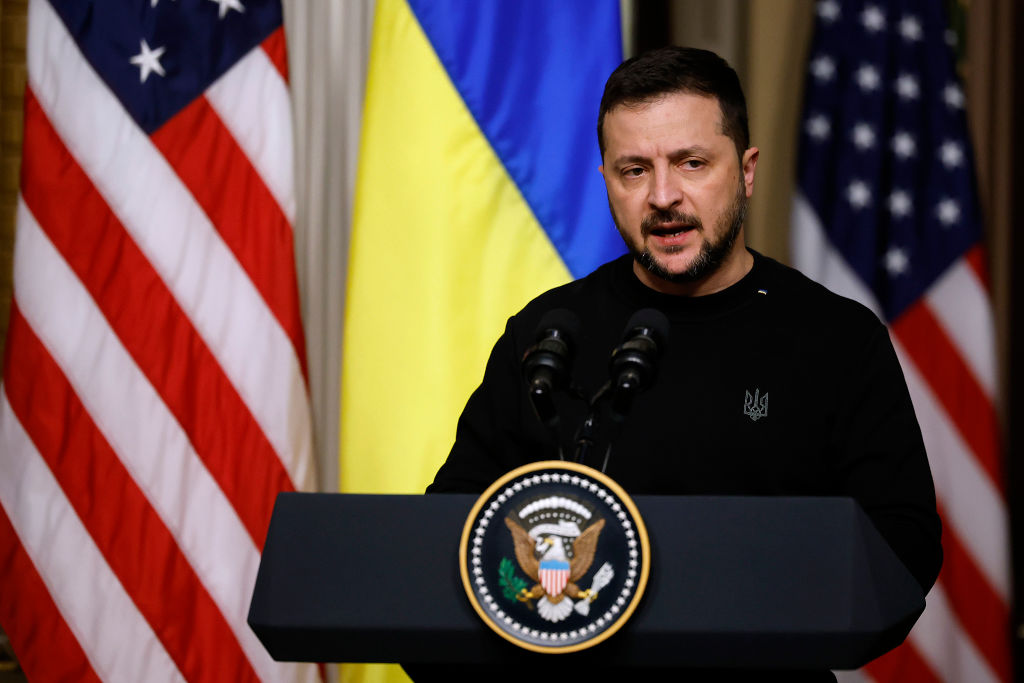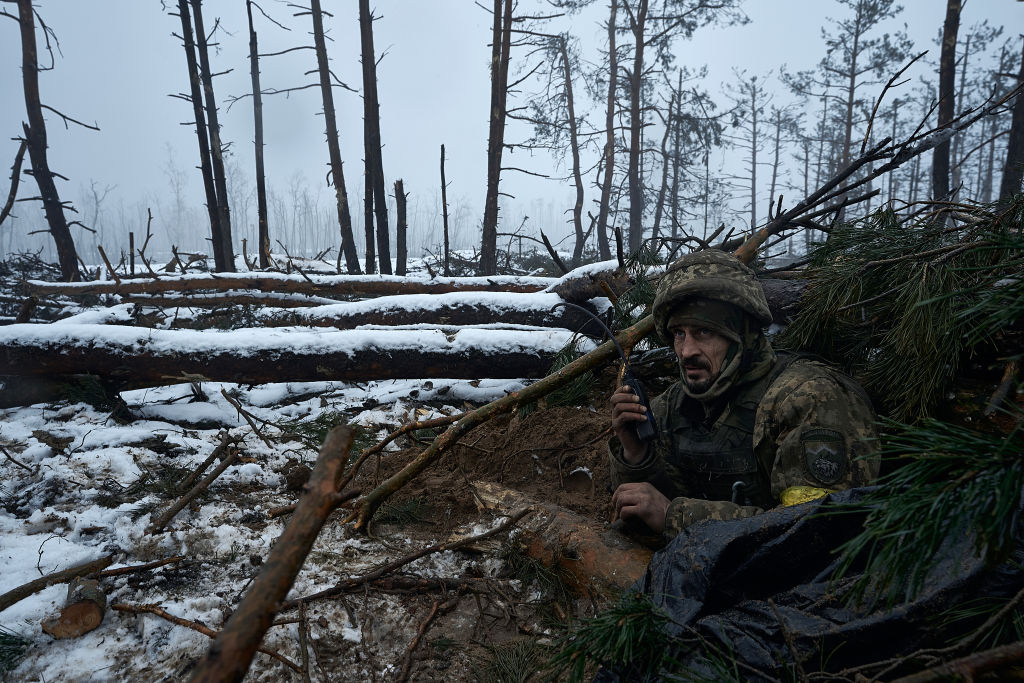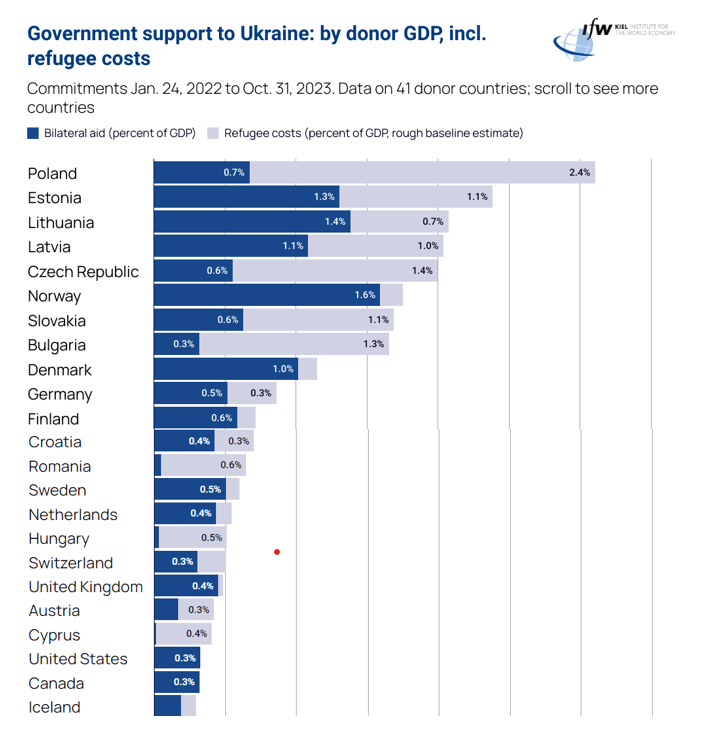
I recently read a book by the great historian William Shirer, a book about the Third French republic, it was between World War I and World War II. One of the most haunting parts of that book was about the failure of the European allies, particularly France and Great Britain to face Hitler when stopping him would have been relatively easy. Whenever people write to my office, asking why are we supporting Ukraine, I answer, Google “Sudetenland in 1938.” We could have stopped a dictator; we, the west, at a relatively low cost. The result of not doing so was 55 million deaths. That chapter has haunted me because it echoes so strongly in what's happening in Ukraine.
We're going to have one of the most important votes that any of us have ever taken in the next few days on support for the people of Ukraine as they fight for our values. This vote will echo throughout the history of this country and the history of the world for generations, particularly if we fail to meet what I believe is a commitment to the people of Ukraine. If we back away, pull out, and leave the Ukrainians without the resources to defend themselves, it will compromise the interests of this country for 50 years. It will be viewed as one of the greatest geopolitical mistakes of the 21st century.
Why? First it will embolden Vladimir Putin. He told us in 2005 that he felt that the greatest catastrophe of the 20th century was the disolution of the Soviet Union. He has pursued the remedy to that catastrophe in his eyes ever since. In 2005, he said the catastrophe, the greatest catastrophe, the disillusion of the Soviet Union. In 2008, he gobbled up part of what had been an independent country of Georgia. In 2014, we all know what happened in Crimea and eastern Ukraine. In 2022, he tried for the rest of Ukraine. And I've talked to people about this. I talked to a fellow on the street in Maine just recently. He said, Putin will stop with Ukraine. I said the Fins don't think so. The Swedes don't think so. The Baltic countries don't think so and the Fins and the Swedes know Russia. Finland has a long border with Russia. They know Russia better than any of us. And they decided to join NATO. They haven't been in NATO for almost 75 years. Why did they decide to join this year? It wasn't just a coincidence or a casual decision like “Oh, yeah, let's join NATO.” No. They know what's coming. They see the danger of our failure to stop Vladimir Putin in Ukraine.
Maya Angelou said if someone tells you who they are, you should believe them. Putin has told us who he is. He's an autocrat. He's an authoritarian. And he wants to rebuild the Soviet Union. And I believe he wouldn't stop there. I don't have much doubt that if in 2022 when those Russian tanks were headed for Kyiv if they had succeeded. If Zelenskyy had run and if they had succeeded in dismantling and amputating the head of the Russian government, of the Ukrainian government, the people of the Baltic states, Lithuania, Latvia, Estonia would also be facing threats from Russia.
We have to take him at his word. He doesn't like the West. He despises the West. He thinks NATO is an aggressive alliance, somehow designed to invade or otherwise threaten Russia. NATO doesn't want to invade Russia. NATO wants to keep the lines where they are. And that's one of the significances of the invasion of Ukraine. It was the first crossing of a border of this nature since World War II.
Until Russia’s invasion, the lines in Europe had been drawn. Putin crossed into a separate country. He doesn't like the concept of democracy. He doesn't like the rule of law. He has a nostalgic view of the Soviet Union. What we're looking at here is an important piece of a global struggle that is real struggle of the 21st century, in my opinion. It's the struggle between the idea of Democracy and the rule of law and authoritarianism and totalitarianism. That's what's going on here; Ukraine is the opening wedge in that conflict. The world is watching – Xi Jinping and Putin and others, are saying our system can't work. It's too messy, too complicated. It takes too long to make. And they're betting, they're betting that we don't have the staying power that our democracy is too feckless to stick to our guns, in this case literally. We'd be rewarding naked aggression. Sudetenland in 1938, the lesson we learned from the 30's was that appeasing dictators, appeasing authoritarians just doesn't work.
Read More: Inside Ukraine's Plan to Arm Itself
But it wouldn't only embolden Putin. It would embolden Xi Jinping. Many of my colleagues on both sides of the aisle are gravely concerned about the future of Taiwan.
It's inevitable that if we cut and run in Ukraine, that will change Xi Jinping's calculus about Taiwan. He's going to say “well, the Americans aren't going to stick it out.” We don't have to worry too much about them helping the Taiwanese defend themselves. It's going to make it easier for him to make that decision because he's going to look and take a lesson. We aren't as good as our word. We left. We walked away. He's watching this like a hawk. He's watching this like a hawk and not a very friendly hawk at that.
You know who else is watching this like a hawk? Kim Jong-Un. He's making threatening noises about South Korea and the war on the peninsula the last few days. You don't think he's not paying attention to what we're doing or not doing in Ukraine? It will be a signal to him. You can't count on those Americans, can't count on them sticking with the South Koreans against aggression from the north. It will embolden Iran. I hate to use the word catastrophe because that's what Putin used, but it would be a catastrophe for this country. It would also shatter the confidence of our allies and our commitments.
Our asymmetric advantage in the world right now is allies. China has customers; America has allies. Russia has Iran and North Korea. We have allies across the world. But our allies are concerned, they are wondering “You’re with us now but when the going gets tough, and you have to maybe have a budget supplemental to stick with us, you're going to walk away”. It's going to undermine the confidence of our allies and in places like Japan and South Korea, they may say we can't count on the Americans to defend us. Therefore, maybe we better develop our own nuclear arms, for example. Maybe we can't count on the famous American nuclear umbrella proliferation, heightened tension, a higher likelihood of these unthinkable weapons being used.
The other reason that we can't walk away is we're undermining our ability to negotiate and make deals in the future. Who the heck is going to deal with us if they know we can't be trusted? We can't keep our word? People who don't keep their word, nobody wants to deal with. Nobody wants to make agreements. Nobody wants to make concessions. Nobody wants to work together.

We will be your ally when times are good, but don't count on us when it gets tough. Don't count us if it's not easy. Don't count on us when times are tough. What an awful thing, what an incredible wound, self-inflicted wound on this country, not only on our moral standing but on our just practical because the allies are going to go their own way because they'll say we can't be trusted. We would be abandoning the people of Ukraine who are literally dying for our values.
I was doing a little historic research the other day. The battle of Yorktown in 1781, the battle that ended the Revolutionary War and really made America. It was the key battle. It was the French fleet that bottled up Cornwall at Yorktown. It was a French Army along with the Continental Army that won the Battle of Yorktown. What if the French had said it's going on too long, this war is going on too long, we're just going to leave, we're going to walk away? There's a reasonable chance we wouldn't be the United States of America today, if our ally had walked away.
Ally means somebody you can count on. The whole idea of an alliance is that you can count on somebody when the times are tough. We're sending ammunition. They're sending lives.
There's not much doubt if we cut and run—if we stop, if we cut off aid— it would be very difficult for the Ukrainians to continue to defend themselves. Russia has a bigger war machine, a bigger army, more wherewithal in terms of munitions. Let's not kid ourselves. If we walk away this week, it's highly likely that Russia will control Ukraine within a few months. We can't have this fantasy that somehow this isn't a big deal and oh, it will all get fixed. We're sending ammunition. They're sending lives. They're not asking us to fight their battles. They're not asking us to send troops. They're asking is for the is the means to defend themselves. And by the way, most of the money we're sending for the arms and ammunition ends up back in our states, in our communities.
What's another argument not to do it? Corruption. I hear this. Corruption. I've been there. I spent an entire day in Kyiv and my principle mission was what about corruption? How serious is it? And met with everybody from Zelenskyy to officials that were running software to keep track of every bullet that goes into their war effort. I'm satisfied that it's one of the best and strongest and most closely accounted for provisions of aid ever. Does that mean it's perfect or there might not be a scandal here or there? I don't think there will be, but nothing is ever perfect. But I looked President Zelenskyy in the eye. My question was, if you have a scandal, Mr. President, it's going to kill us—we wouldn’t be able to support you. I didn't know what he was going to say, but his answer was: I know. President Zelenskyy understood.
Another point that I think is important is what countries are supporting Ukraine, and how much they are contributing. People think that we're giving all the money. They say, what about the rest of Europe? According to the Institute for the World Economy, the U.S. is ranked 14th in Ukrainian support as a percentage of GDP. In Poland, they've taken in millions of refugees. Ukrainians are in their schools, in their communities. Poland has made an enormous commitment. It's up to 2.5% of their GDP. The idea that nobody else is contributing and Europe isn't doing its part is ridiculous.

At the end of the day: Democracy matters. Values matter. Freedom of expression, the rule of law matter, and that's what's at stake. This is a historic struggle between authoritarianism, arbitrariness, surveillance, and the radical idea that people can govern themselves. That's what this is all about. This is a battle for the soul of our democracy in the world. Democracy is an anomaly in world history. It's unusual -- the norm is dictators, pharaohs, emperors, kings. What we're doing in this country is an anomaly, but it's a glorious idea. It's a huge, radical idea. It was radical in 1776. It had to be fought for in 1865. And it had to be fought for in the plains of Europe and the pacific and World War II. It's worth fighting for. And in this case, we don't even have to do the fighting. We just have to supply the arms and ammunition.
So I have a question for my colleagues. When the history of this day is written, as it surely will be, do you really want to be recorded as being on the side of Putin? All those in favor of Putin, say aye. That's what's at stake here. Or on the side of China, as they contemplate the invasion of Taiwan. All those in favor of the invasion of Taiwan, say aye. No. We don't want that. But history's going to record this vote as one of the most important votes that any of us has ever made.
One final note: people say, well, secure our border before we worry about Ukraine's border. Right now, the best negotiators of the Senate have been working in good faith on that issue for months. I’m told that the agreement they are finalizing is the strongest border security legislation in something like 40 years. So yes, we can both secure our border and aid Ukraine in the bill the Senate is likely to consider soon. If we don't address the situation the border now, who knows when this opportunity will come again? Meanwhile, the dictators around the world are betting we can't pass this bipartisan agreement; they're betting against our system. They're betting that democracy can't work, that we can't make tough decisions and tough commitments and live up to them. I want to stand on the side of resisting authoritarianism, on the side of democracy, on the side of the values that the country has stood for and that people have been fighting for 250 years.
There's a wonderful hymn that we sing in my church, and it starts like this: once to every man and nation comes the moment to decide, in the strife of truth with falsehood for the good or evil side. This is Congress’ moment. On December 1, 1862, in the midst of the civil war, Abraham Lincoln came to the Congress, to focus on the crisis of the civil war and what it really meant. Here's what Abraham Lincoln said: “My fellow citizens, we cannot escape history. We, of this Congress and this Administration, will be remembered in spite of ourselves. No personal significance or insignificance can spare one or another of us. The fiery trial through which we pass will light us down in honor or dishonor to the latest generation.”
I deeply hope we choose honor.
Adapted from a speech given by Senator King on the Senate Floor on Jan. 31, 2024
More Must-Reads from TIME
- Cybersecurity Experts Are Sounding the Alarm on DOGE
- Meet the 2025 Women of the Year
- The Harsh Truth About Disability Inclusion
- Why Do More Young Adults Have Cancer?
- Colman Domingo Leads With Radical Love
- How to Get Better at Doing Things Alone
- Michelle Zauner Stares Down the Darkness
Contact us at letters@time.com